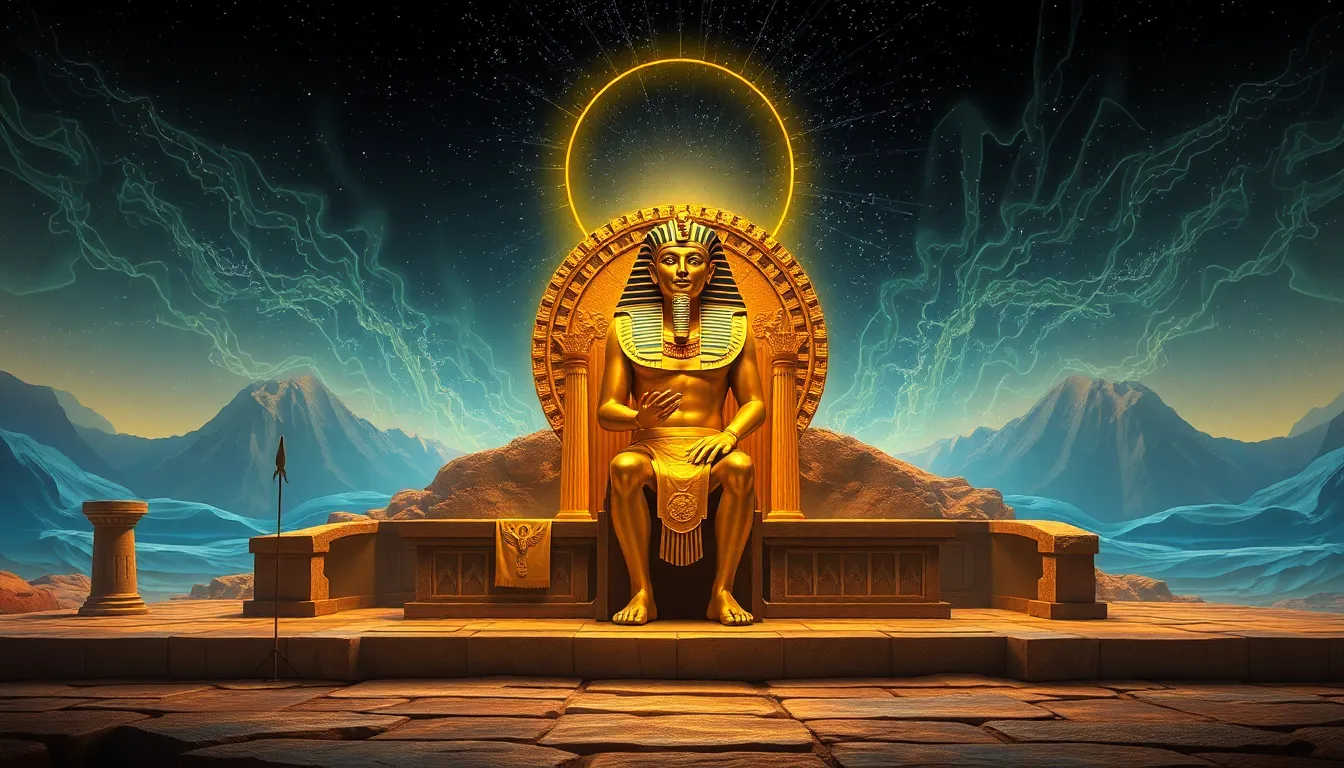The Spiritual Teachings of the God Set
I. Introduction to the God Set
Set, one of the most complex deities in ancient Egyptian mythology, is often misunderstood. Known as the god of chaos, storms, and the desert, Set embodies the tumultuous aspects of existence. His significance extends beyond mere disorder; he plays a crucial role in the spiritual and religious contexts of ancient Egypt.
Set’s teachings offer profound insights into the nature of life, emphasizing the importance of balance, transformation, and individuality. This exploration aims to uncover the wisdom associated with Set, illustrating how his lessons can be applied to modern spiritual practices.
II. The Dual Nature of Set
Set’s persona is inherently dualistic, representing both chaos and order. This complexity is essential for understanding his role in mythology and spiritual teachings.
- Set as a symbol of chaos and disorder: Often portrayed as a disruptive force, Set challenges the status quo, prompting change and evolution.
- Set as a protector and warrior of the sun god Ra: In his battles against the serpent Apophis, Set demonstrates his role as a protector, ensuring the sun god’s journey across the sky.
- Understanding the balance of light and darkness: Set’s existence reminds us that chaos is a necessary counterpart to order, and both are essential for the universe’s harmony.
III. Set and the Concept of Transformation
Transformation is a central theme in Set’s teachings. Through embracing chaos, individuals can undergo significant personal and spiritual growth.
- Set’s role in personal and spiritual transformation: By confronting the chaotic aspects of life, one can emerge stronger and more resilient.
- Embracing chaos as a catalyst for growth: Set teaches that chaos is not to be feared but embraced as a vital part of the transformation process.
- Stories of transformation associated with Set: Myths such as the conflict with Osiris illustrate how struggles lead to new beginnings and deeper understanding.
IV. The Importance of Individuality and Self-Discovery
Set embodies the spirit of individuality and autonomy. His teachings encourage self-acceptance and authenticity.
- Set’s representation of individualism and autonomy: Set stands as a symbol for those who dare to be different, challenging societal norms.
- Lessons on self-acceptance and authenticity: Embracing one’s true self, including flaws and chaos, leads to greater fulfillment.
- Set as a guide in the journey of self-discovery: By exploring one’s inner chaos, individuals can uncover their true potential and purpose.
V. The Teachings on Power and Control
Set’s relationship with power is intricate, offering valuable lessons on control and responsibility.
- Set’s relationship with power dynamics: As a figure who often challenges authority, Set highlights the complexities of power in relationships and society.
- Ethical considerations of wielding power: Set’s teachings urge individuals to reflect on the ethical implications of their power and actions.
- Harnessing personal power through Set’s teachings: By understanding and embracing one’s inner chaos, individuals can assert their power in constructive ways.
VI. Set and the Nature of Conflict
Conflict is an inevitable aspect of existence, and Set’s mythology provides insights into navigating it.
- Understanding conflict through Set’s mythology: Set’s battles, particularly against Osiris and Horus, illustrate the dynamics of conflict and resolution.
- Lessons on confronting and resolving inner turmoil: Set encourages individuals to face their conflicts head-on, promoting healing and understanding.
- The significance of embracing conflict for personal growth: By embracing conflict, individuals can learn valuable lessons and foster personal development.
VII. Rituals and Practices Associated with Set
Historically, the worship of Set included various rituals that honored his complex nature.
- Historical rituals dedicated to Set: Ancient Egyptians performed ceremonies to appease Set, especially during times of chaos or uncertainty.
- Modern practices inspired by Set’s teachings: Contemporary spiritual practices can incorporate elements of Set, focusing on chaos and transformation.
- How to incorporate Set’s wisdom into daily life: Individuals can adopt practices that encourage embracing chaos, such as meditation on challenges and journaling about personal transformations.
VIII. Conclusion: Embracing the Teachings of Set
In summary, Set’s teachings offer profound insights that remain relevant today. His dual nature, emphasis on transformation, and advocacy for individuality provide a framework for personal empowerment and growth.
Exploring Set’s wisdom can lead to a deeper understanding of oneself and the world, encouraging individuals to embrace both chaos and order in their spiritual practices.
In conclusion, the balance of chaos and order is essential for spiritual practice, and by embracing the teachings of Set, one can navigate the complexities of life with confidence and authenticity.




